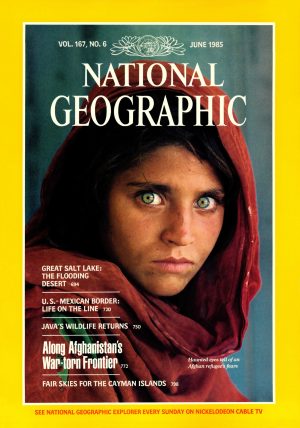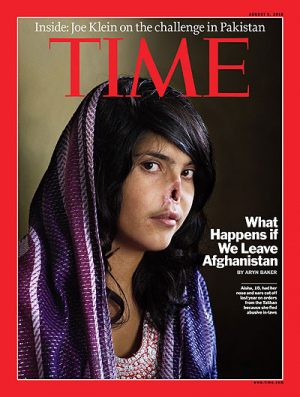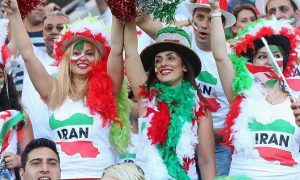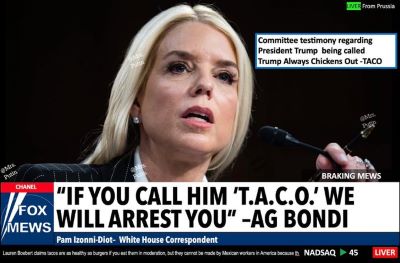

Since iconic pictures are in the news, I thought I would resurrect two Afghan pictures that have not been featured lately.
AFGHAN GIRL NATIONAL GEOGRAPHIC
The picture of this green-eyed Afghan girl took the world by storm when it appeared back in 1985. The world was different then. The United States remained locked in a Cold War against the Evil Empire. Little did we know that the Soviet Union soon would be consigned to the dustbin of history as a failed effort in the 20th century to be the wave of the future.
At that time, the Soviet Union was seeking to assert its power in Central Asia in a brutal crackdown in Afghanistan. American sympathies were with the valiant Afghan people who were struggling as best they could to thwart that effort and free the land of a foreign oppressor.
That effort increasingly relied on the participation of Moslems. These religious believers fought the godless Communist invaders. AND WE HELPED THEM. How could we not support a people of religion against a people of none? Little did we know how that would turn out.
The cover picture of this haunting green-eyed girl captured the moment. “Refugee” was not a term of opprobrium then. The picture invited us to take her side in the battle. How could anyone mistreat her?
AFGHAN GIRL TIME MAGAZINE
The answer to the question of how anyone could mistreat her appeared on the cover of Time Magazine a mere 25 years later. Here is how the magazine described the new situation for women under not the Soviet Union but under the rule of the Afghan Taliban.
The Taliban pounded on the door just before midnight, demanding that Aisha, 18, be punished for running away from her husband’s house. They dragged her to a mountain clearing near her village in the southern Afghan province of Uruzgan, ignoring her protests that her in-laws had been abusive, that she had no choice but to escape. Shivering in the cold air and blinded by the flashlights trained on her by her husband’s family, she faced her spouse and accuser. Her in-laws treated her like a slave, Aisha pleaded. They beat her. If she hadn’t run away, she would have died. Her judge, a local Taliban commander, was unmoved. Later, he would tell Aisha’s uncle that she had to be made an example of lest other girls in the village try to do the same thing. The commander gave his verdict, and men moved in to deliver the punishment. Aisha’s brother-in-law held her down while her husband pulled out a knife. First he sliced off her ears. Then he started on her nose. Aisha passed out from the pain but awoke soon after, choking on her own blood. The men had left her on the mountainside to die.
How quickly times had the changed. The heroes of the war against Soviet imperialism had become the people who wreaked monstrous havoc on their fellow Afghan people.
The article is a fascinating “time capsule” in a world only 11 years ago. The issues covered then are some of the same ones being addressed today. There was frustration among Americans about how little it had to show for the billions of dollars poured into the Afghan military. There was the concern of what an American pullout would mean. One wondered what the treatment of women would be once the protective America umbrella was removed. How could there be any peaceful negotiation with a people who could do this to this woman? How could the Afghan people live together in peace when one group remembered the comparative innocence of life in the capital city a few decades earlier and the other side was steeped in a fanatical form of Islam that did not even exist until recently?
The debate held in 2010 seems eerie now in 2021. In one sense our worst nightmares have come true. In 2010 there was an Afghan government. Now what is there? In 2010 the debate was over some kind of partnership or sharing or power within Afghanistan. Now there is no one to partner with. The question has shifted to what will the Taliban do now that it is in power? Does it really want to be part of the community of nations or will it be like ISIS that seeks to destroy that community?
IRAN OR VIETNAM?
In my previous blog (Afghans Are Not Kurds: Will They Become Vietnam?), I wrote that it is premature to judge history by a single photograph. The iconic Vietnam image of the rising helicopter has little meaning for the relationship today. Even as I wrote those words the Vice President of the United States was in Hanoi calling on Vietnam to join with us against Chinese bullying. Kamala Harris did not arrive emptyhanded in Hanoi either. She came bearing gifts. She even laid flowers at the monument where John McCain’s plane had been shot down in 1967. Times change.

Similarly for the Taliban. In their case the enemy now is not China but ISIS-K. Look how quickly the Taliban and the United States began to work together. Who knows how long it will last? Who knows how far it will extend? Who knows what female image will become the next iconic one in the story of the country? The more they want to be part of the community of nations and the more ISIS-K fights that objective, the more willing the Taliban will be to seek assistance in that struggle. Think of the women in Moslem Iran and the clothes they wear. How much time and effort does the Taliban want to spend on erasing that American past while simultaneously fighting ISIS-K?
THE TALIBAN ARE INDIGENOUS, AMERICANS ARE NOT
There are some odd twists and turns to the current situation. In this conflict between the United States and the Taliban, we are the outsiders. We are the foreigners. We are the ones who sought to insert our values into the Afghan society. We sought a modern version of the Indian Schools. We helped build them in Afghanistan. Afghans would be taught our values on freedom, our values on education of women, and our values on clothing. The fact that many Afghans seemed to welcome such cultural changes does not change the fact that those values were not indigenous ones but from a dominant outsider.
So should the triumph of the Taliban be hailed by the Woke as a victory of the Indigenous over the white American imperialist? I will leave that to others to decide. I note as I have said before that anti-American vocabulary concocted in elitist American academic laboratories does not travel well once removed from its point of origin. Strangely enough there are some rightwing groups who cheer the religious Taliban victory over liberal America. Undoubtedly there are more twist and turns to come.





